Excelencia en fajas al por mayor: 5 estrategias profesionales de la cadena de suministro
En ropa moldeadora El mercado está experimentando un crecimiento fenomenal, impulsado por un aumento de la demanda de los consumidores de prendas para dar forma al cuerpo que ofrecen una combinación de comodidad, confianza y estilo. Esto presenta una lucrativa oportunidad tanto para los aspirantes a emprendedores como para las empresas establecidas de aprovechar este próspero mercado y capitalizar la creciente popularidad de las fajas. Tanto si eres una startup que busca establecer tu marca como un minorista establecido que pretende ampliar su oferta de productos, comprender las complejidades de la cadena de suministro de fajas al por mayor es primordial para lograr un éxito sostenible.
Sin embargo, navegar por este complejo panorama puede ser desalentador, especialmente para los nuevos en la industria. Desde la búsqueda de fabricantes fiables que ofrezcan constantemente productos de alta calidad hasta la gestión eficiente del inventario y la garantía de la entrega puntual a tus clientes, una cadena de suministro bien engrasada ya no es una ventaja competitiva, sino un requisito fundamental para la supervivencia y el crecimiento en
Esta guía completa está diseñada para proporcionarle el conocimiento, las estrategias y los conocimientos necesarios para navegar con confianza en la cadena de suministro de fajas al por mayor. Al dominar estos elementos esenciales, estará capacitado para tomar decisiones informadas que no solo optimicen sus operaciones, sino que también impulsen la rentabilidad y posicionen su negocio para el éxito a largo plazo en este mercado competitivo.
Por qué el dominio de la cadena de suministro es innegociable en la industria de las fajas
La industria de las fajas se caracteriza por una intensa competencia, las preferencias de los consumidores en constante evolución y el imperativo de adaptarse rápidamente a las tendencias emergentes. Una cadena de suministro robusta y ágil ya no es un lujo; es la base sobre la cual se construyen los negocios exitosos de fajas. He aquí por qué:
- Satisfacer la demanda de los consumidores: El mercado de las fajas está impulsado por una demanda constante y, a menudo, fluctuante de los consumidores. Los desabastecimientos y los retrasos en el cumplimiento de los pedidos pueden generar oportunidades de ventas perdidas, clientes frustrados y, en última instancia, daños a la reputación de su marca. Una cadena de suministro bien gestionada garantiza que tenga los productos correctos en stock, en el momento adecuado, para satisfacer las expectativas de los clientes y capitalizar los períodos de máxima demanda.
- Mantener precios competitivos: En un mercado competitivo como el de las fajas, el precio es un factor crítico que influye en las decisiones de compra de los consumidores. La optimización de su cadena de suministro puede afectar significativamente sus resultados al permitirle asegurar precios competitivos de los fabricantes, optimizar los costos de transporte y logística y minimizar el desperdicio en toda la cadena de suministro. Estos ahorros de costos pueden luego trasladarse a sus clientes en forma de precios atractivos, lo que le brinda una ventaja competitiva.
- Garantizar una calidad de producto constante: Mantener una calidad de producto constante es primordial para construir una sólida reputación de marca y fomentar la lealtad del cliente. La asociación con fabricantes de renombre que se adhieren a estrictas medidas de control de calidad durante todo el proceso de producción es esencial para ofrecer fajas que cumplan con las expectativas de sus clientes en cuanto a ajuste, comodidad y durabilidad.
- Mejorar la experiencia del cliente: En el mercado actual, centrado en el cliente, brindar una experiencia positiva y fluida al cliente es primordial para impulsar la repetición de negocios y fomentar la defensa de la marca. Una cadena de suministro bien engrasada juega un papel crucial en esto al garantizar el cumplimiento oportuno de los pedidos, envíos precisos y el manejo eficiente de devoluciones o cambios. Una experiencia fluida y sin complicaciones mejora la satisfacción del cliente y genera confianza en su marca.
- Permitir el crecimiento y la escalabilidad del negocio: A medida que su negocio crece y se expande, su cadena de suministro debe seguir el ritmo. Una cadena de suministro escalable y adaptable proporciona la base para aumentar la capacidad de producción, explorar nuevos mercados y responder eficazmente a las cambiantes demandas del mercado sin comprometer la eficiencia ni la satisfacción del cliente.
5 pasos esenciales para dominar la cadena de suministro de fajas al por mayor
La construcción de una cadena de suministro resiliente, receptiva y eficiente requiere una planificación meticulosa, una toma de decisiones estratégica y un compromiso con la optimización continua. No es una tarea única, sino un proceso iterativo de mejora continua. Aquí hay cinco pasos esenciales para guiarlo a través del proceso de establecimiento de una cadena de suministro sólida para su negocio de fajas al por mayor:
- Identifique su mercado objetivo y nicho de producto: Antes de profundizar en las complejidades de la búsqueda de fabricantes y la negociación de contratos de producción, es fundamental tener una comprensión clara de su mercado objetivo y su nicho de producto previsto dentro de la categoría más amplia de fajas. Este paso fundamental guiará sus decisiones de abastecimiento y garantizará que ofrezca productos que resuenen con sus clientes ideales. Considere estos factores clave:
- ID: Datos demográficos: Defina el perfil de su cliente ideal. ¿Cuál es su rango de edad, estilo de vida, tipo de cuerpo y nivel de ingresos? Comprender sus características demográficas le ayudará a adaptar su selección de productos y sus esfuerzos de marketing de forma eficaz.
- ID: Preferencias de estilo: Las fajas abarcan una amplia gama de estilos, desde bodysuits y cinturillas hasta moldeadores de muslos y leggings de control. Investigue e identifique los estilos de fajas específicos que son más populares entre su mercado objetivo. ¿Cuáles son sus preferencias en términos de cobertura, niveles de compresión y características de diseño?
- Precio: Establezca una comprensión clara del rango de precios que se alinea con el presupuesto y el comportamiento de compra de su mercado objetivo. ¿Son sensibles a los precios o están dispuestos a invertir en fajas premium y de alta calidad?
- ID: Valores: Más allá de los beneficios funcionales, los consumidores están cada vez más impulsados por decisiones de compra basadas en valores. Identifique cualquier valor específico que resuene con su mercado objetivo, como la preferencia por materiales sostenibles y de origen ético, la positividad corporal o la inclusión en el tallaje y el diseño.
- Busque fabricantes confiables y dignos de confianza: La asociación con el fabricante adecuado es posiblemente la decisión más crítica que tomará al construir un negocio de fajas al por mayor. Su fabricante es más que un simple proveedor; son una extensión de su marca y juegan un papel fundamental en su capacidad para ofrecer productos de alta calidad que cumplan con las expectativas de los clientes. Considere estos factores cruciales al evaluar a los posibles socios de fabricación:FactorDescripciónPreguntas clave para hacerExperiencia y experienciaBusca fabricantes con un historial probado de producción de fajas de alta calidad. La experiencia es importante en esta categoría de prendas especializadas, ya que a menudo implica diseños intrincados, tejidos especializados y técnicas de fabricación únicas.* ¿Cuánto tiempo llevan en el negocio y cuál es su experiencia específica en la fabricación de fajas? <br> * ¿Pueden proporcionar referencias o testimonios de otras empresas con las que han trabajado en la industria de las fajas? <br> * ¿Tienen una cartera que muestre la gama de estilos y diseños de fajas que han producido?Capacidad de producciónAsegúrate de que el fabricante tiene la capacidad de gestionar el volumen de tu pedido, tanto actualmente como a medida que tu negocio crece. Pregunta sobre sus capacidades de producción para evitar posibles cuellos de botella o retrasos.* ¿Cuál es su capacidad máxima de producción por mes o año? <br> * ¿Cuáles son sus plazos de entrega típicos para la producción, desde la colocación del pedido hasta el envío? <br> * ¿Pueden aceptar pedidos urgentes si es necesario, y en caso afirmativo, cuáles son los costes asociados o las implicaciones del plazo de entrega?Medidas de control de calidadEl control de calidad estricto no es negociable en la industria de las fajas, donde el ajuste, la comodidad y la durabilidad son primordiales. Pregunta sobre los protocolos de control de calidad del fabricante para asegurarte de que se ajustan a tus estándares.* ¿Qué medidas específicas de control de calidad tienen implementadas en cada etapa del proceso de producción? <br> * ¿Realizan inspecciones en proceso para identificar y abordar cualquier desviación de calidad desde el principio? <br> * ¿Tienen un equipo de control de calidad dedicado, y cuáles son sus cualificaciones y experiencia? <br> * ¿Tienen alguna certificación relacionada con los sistemas de gestión de la calidad, como la ISO 9001?Comunicación y capacidad de respuestaLa comunicación eficaz y transparente es esencial para una asociación exitosa y mutuamente beneficiosa. Evalúa las prácticas de comunicación del fabricante para asegurarte de que se ajustan a tus expectativas.* ¿Cómo de receptivos son a las consultas, tanto durante el proceso de selección inicial como a lo largo del ciclo de producción? <br> * ¿Tienen un punto de contacto dedicado para los clientes mayoristas, que proporciona una línea de comunicación directa? <br> * ¿Son proactivos a la hora de proporcionar actualizaciones sobre el estado de la producción, los posibles retrasos o cualquier otra información relevante? <br> * ¿Están abiertos a la retroalimentación y dispuestos a trabajar en colaboración para abordar cualquier desafío que pueda surgir?Prácticas éticas y sosteniblesEn el mercado actual, socialmente consciente, los consumidores se sienten cada vez más atraídos por las marcas que se alinean con sus valores. Asociarse con fabricantes éticos y sostenibles no solo refleja positivamente en tu marca, sino que también se alinea con las prácticas empresariales responsables.* ¿Priorizan los salarios justos, las condiciones de trabajo seguras y el bienestar de los empleados en todas sus operaciones? <br> * ¿Tienen alguna iniciativa de sostenibilidad medioambiental para minimizar su huella ecológica, como la reducción de residuos, la conservación del agua o el uso de materiales ecológicos? <br> * ¿Son transparentes sobre sus prácticas de abastecimiento y fabricación, lo que permite la trazabilidad y la rendición de cuentas dentro de su cadena de suministro?
- Negocie términos y condiciones favorables: Una vez que haya identificado a los posibles socios de fabricación que se alinean con los valores de su marca y los requisitos de producción, es hora de entrar en la fase de negociación para establecer términos y condiciones mutuamente beneficiosos para su asociación. Este paso es crucial para proteger sus intereses, garantizar la claridad y sentar las bases para una colaboración exitosa y a largo plazo. Los aspectos clave a abordar durante el proceso de negociación incluyen:
- Cantidades mínimas de pedido (CMP): Los fabricantes suelen tener cantidades mínimas de pedido (MOQ) para garantizar la eficiencia de la producción y la rentabilidad. Estos MOQ pueden variar según factores como la complejidad de la prenda, la tela utilizada y la capacidad de producción del fabricante. Negocie MOQ que se alineen con su presupuesto, capacidad de inventario y proyecciones de ventas. Si es una empresa emergente o una empresa más pequeña, explore la posibilidad de negociar MOQ más bajos, especialmente para sus pedidos iniciales.
- Precios y condiciones de pago: Asegurar precios competitivos de su fabricante es esencial para mantener márgenes de beneficio saludables. Negocie los precios en función de factores como el volumen del pedido, la complejidad de la producción y las condiciones de pago. Explore opciones de descuentos por volumen, especialmente para pedidos más grandes. Discuta las condiciones de pago que funcionen para su flujo de caja, como depósitos, pagos de progreso o condiciones de pago neto.
- Plazos de entrega de producción: Establezca expectativas claras para los plazos de entrega de producción para garantizar la entrega oportuna de sus pedidos y evitar desabastecimientos. Tenga en cuenta los posibles retrasos, como el abastecimiento de telas o los retrasos en la producción, e incorpore tiempo de amortiguación para adaptarse a circunstancias imprevistas. Describa claramente las consecuencias de los plazos incumplidos, como sanciones o cancelaciones de pedidos.
- Envío y logística: Discuta las opciones de envío, los costos y las responsabilidades con el fabricante. Determine quién es responsable de los gastos de flete, el seguro, el despacho de aduana (para envíos internacionales) y cualquier otro costo asociado. Negocie tarifas de envío favorables, especialmente para pedidos al por mayor, y explore opciones para consolidar los envíos a fin de reducir los costos de transporte.
- Políticas de devoluciones y defectos: Establezca procedimientos claros y mutuamente acordados para el manejo de devoluciones, productos defectuosos y problemas de calidad. Negocie una política de devolución justa y razonable que proteja tanto su negocio como a sus clientes. Describa el proceso para iniciar devoluciones, el plazo para procesar las devoluciones y emitir reembolsos, y las responsabilidades de ambas partes en caso de productos dañados o defectuosos.
- Optimice la gestión de inventario para lograr eficiencia: La gestión eficaz del inventario es crucial para minimizar los costos de almacenamiento, reducir el riesgo de obsolescencia y desperdicio, y garantizar que tenga los productos correctos en stock para satisfacer la demanda de los clientes sin inmovilizar un capital excesivo en exceso de inventario. Implemente estas estrategias para optimizar la gestión de su inventario:
- Pronóstico de la demanda: Aproveche los datos históricos de ventas, las tendencias del mercado, la estacionalidad y cualquier campaña promocional que haya planeado para pronosticar la demanda futura de sus productos de fajas. El pronóstico preciso de la demanda le permite anticipar las necesidades de los clientes, optimizar los niveles de inventario y evitar los inconvenientes del sobreabastecimiento o, por el contrario, los desabastecimientos.
- Sistema de seguimiento de inventario: Implemente un sistema de seguimiento de inventario sólido que proporcione visibilidad en tiempo real de sus niveles de existencias. Esto podría ser una solución de software o una hoja de cálculo bien mantenida, según el tamaño y la complejidad de su negocio. Un sistema de seguimiento eficaz le permite controlar el movimiento del inventario, identificar los artículos con poco stock y configurar puntos de reorden automatizados para evitar desabastecimientos y garantizar un flujo continuo de bienes.
- Inventario justo a tiempo (JIT): Considere implementar un sistema de inventario justo a tiempo (JIT), una estrategia en la que solicita productos a su fabricante solo cuando se necesitan para cumplir con los pedidos de los clientes. La gestión de inventario JIT minimiza los costos de almacenamiento, reduce el riesgo de mantener inventario obsoleto y mejora el flujo de caja al reducir la cantidad de capital inmovilizado en existencias. Sin embargo, requiere una estrecha coordinación con su fabricante y plazos de entrega confiables para ser eficaz.
- Gestión de almacén: Si tiene un almacén físico para almacenar su inventario de fajas, optimice su diseño, procesos y tecnología para la recepción, el almacenamiento, la selección, el embalaje y el cumplimiento eficientes de los pedidos. Considere factores como la utilización del espacio, la accesibilidad de los productos, la rotación del inventario (primero en entrar, primero en salir), las medidas de seguridad y el uso de software de gestión de almacén para optimizar las operaciones y minimizar los errores.
- Priorice el control de calidad en toda la cadena de suministro: Mantener estrictas medidas de control de calidad en toda su cadena de suministro es primordial para garantizar la satisfacción del cliente, proteger la reputación de su marca y minimizar el riesgo de costosas devoluciones o daños a la reputación. Implemente estas prácticas de control de calidad en varias etapas de su cadena de suministro:
- Inspecciones previas a la producción: Antes de que comience la producción en masa, realice inspecciones previas a la producción exhaustivas de las muestras proporcionadas por su fabricante. Verifique que las muestras cumplan con sus estándares de calidad, las expectativas de ajuste y se adhieran a las especificaciones acordadas descritas en su paquete técnico o documento de especificaciones del producto. Este paso ayuda a identificar y abordar cualquier discrepancia o problema de calidad desde el principio, antes de que comience la producción en masa.
- Inspecciones en proceso: Implemente inspecciones en proceso en varias etapas del proceso de producción para controlar la calidad y garantizar la coherencia. Estas inspecciones pueden ser realizadas por su propio equipo o por una agencia de control de calidad de terceros. Las inspecciones en proceso ayudan a identificar y rectificar cualquier desviación de los estándares de calidad desde el principio, minimizando el riesgo de que los productos defectuosos lleguen a sus clientes.
- Inspecciones finales: Antes del envío, realice inspecciones finales exhaustivas de los productos terminados para garantizar que cumplan con sus estándares de calidad, estén libres de defectos y estén embalados correctamente para el envío. Esta verificación final brinda la oportunidad de detectar cualquier problema pasado por alto y garantiza que solo los productos que cumplen con sus estándares se envíen a sus clientes.
- Bucle de retroalimentación del cliente: Establezca un sistema para recopilar comentarios de los clientes sobre la calidad del producto, el ajuste y la satisfacción general. Esto podría ser a través de encuestas posteriores a la compra, reseñas de productos o interacciones directas con el servicio al cliente. Analice estos comentarios para identificar cualquier problema recurrente o áreas de mejora en el proceso de fabricación. Comunique cualquier comentario o inquietud de calidad significativa a su fabricante para facilitar la mejora continua y garantizar que los comentarios de los clientes se incorporen en futuras tiradas de producción.
Abrace el poder de la colaboración y la comunicación
Navegar por las complejidades de la cadena de suministro de fajas al por mayor no es una tarea solitaria; requiere un enfoque colaborativo y canales de comunicación abiertos con sus socios de fabricación. La construcción de relaciones sólidas y mutuamente beneficiosas con sus fabricantes, basadas en la confianza, la transparencia y los objetivos compartidos, es esencial para el éxito a largo plazo. Comunique regularmente sus expectativas, proporcione especificaciones de productos claras y detalladas, y sea proactivo al abordar cualquier desafío o inquietud que pueda surgir. Al fomentar una asociación colaborativa y comunicativa, puede garantizar una cadena de suministro más fluida, eficiente y, en última instancia, más exitosa que respalde el crecimiento de su negocio y mejore su capacidad para satisfacer las demandas cambiantes del mercado de las fajas.
¿Por qué elegir S-SHAPER como su socio mayorista de fajas?
En S-SHAPER, entendemos las complejidades de la industria de las fajas al por mayor y el papel fundamental que juega una cadena de suministro confiable en su éxito. Es por eso que vamos más allá de ser simplemente un fabricante: somos sus socios dedicados al crecimiento, comprometidos a brindarle los productos, el apoyo y la tranquilidad que necesita para prosperar.
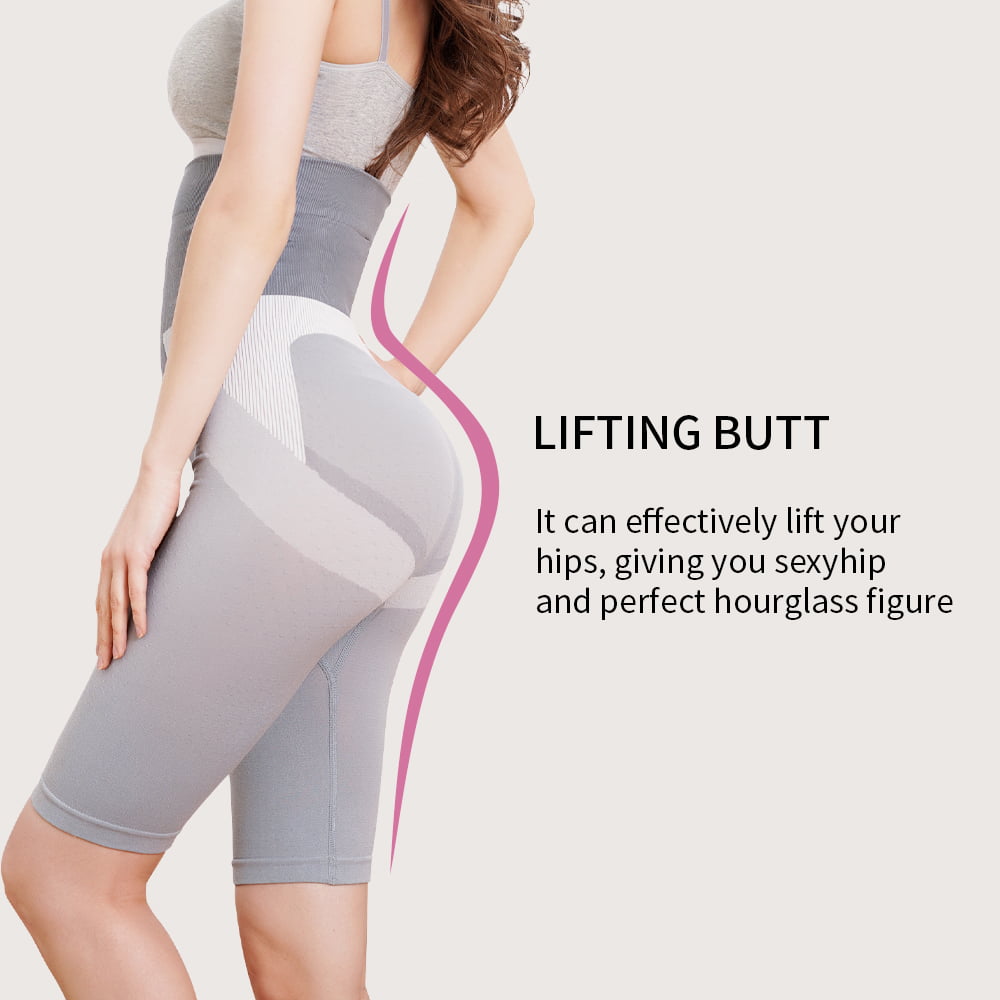
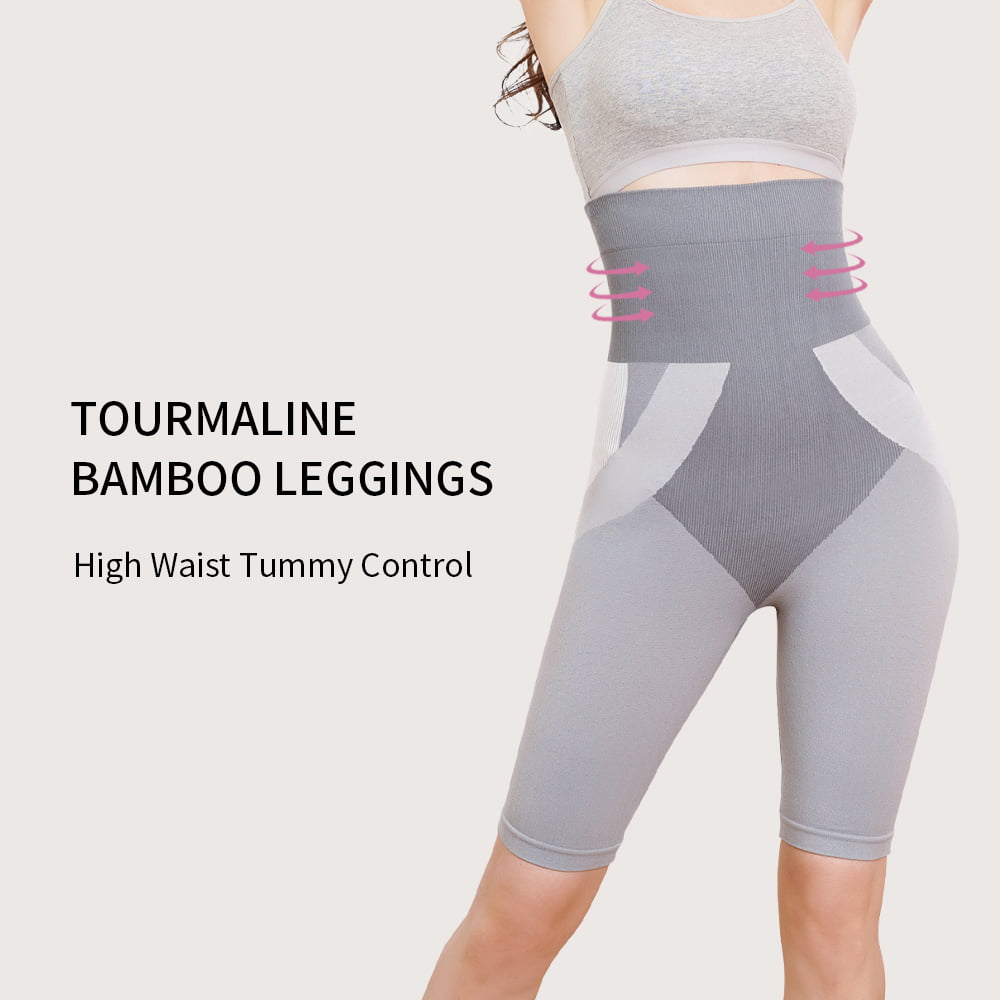
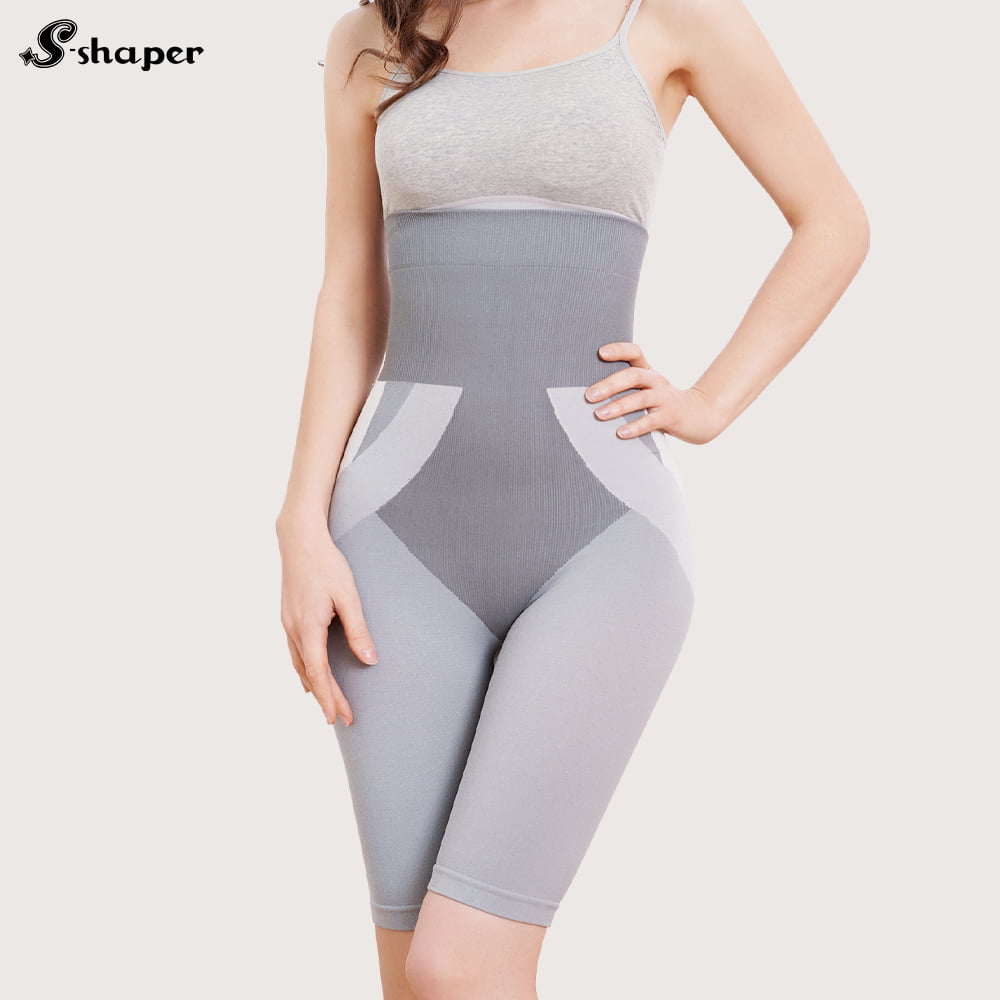
Así es como nos alineamos con las conclusiones clave de nuestra guía:
- Experiencia específica: Nos especializamos en la elaboración de fajas de alta calidad, que satisfacen a diversos mercados objetivo y preferencias de estilo. Cuéntenos su nicho y se lo entregaremos.
- Fabricación verificada: Hemos hecho el trabajo pesado por usted. Nuestros socios de fabricación son rigurosamente examinados en cuanto a experiencia, capacidad, control de calidad y prácticas éticas.
- Colaboración transparente: Creemos en la comunicación abierta y las asociaciones colaborativas. Trabajaremos en estrecha colaboración con usted en cada paso del camino, desde el desarrollo del producto hasta la entrega oportuna.
- Soluciones eficientes de inventario: Ofrecemos MOQ flexibles, precios competitivos y plazos de entrega de producción eficientes para ayudarlo a optimizar su inventario y administrar su flujo de caja de manera efectiva.
- Garantía de calidad inquebrantable: La calidad está en el corazón de todo lo que hacemos. Mantenemos estrictas medidas de control de calidad en toda la cadena de suministro, desde las inspecciones previas a la producción hasta las comprobaciones finales del producto, lo que garantiza que sus clientes reciban fajas excepcionales.
Asóciese con S-SHAPER y experimente la diferencia que puede marcar un socio mayorista de fajas dedicado. Construyamos juntos un viaje exitoso y rentable.
Comparte este post:
Entradas relacionadas
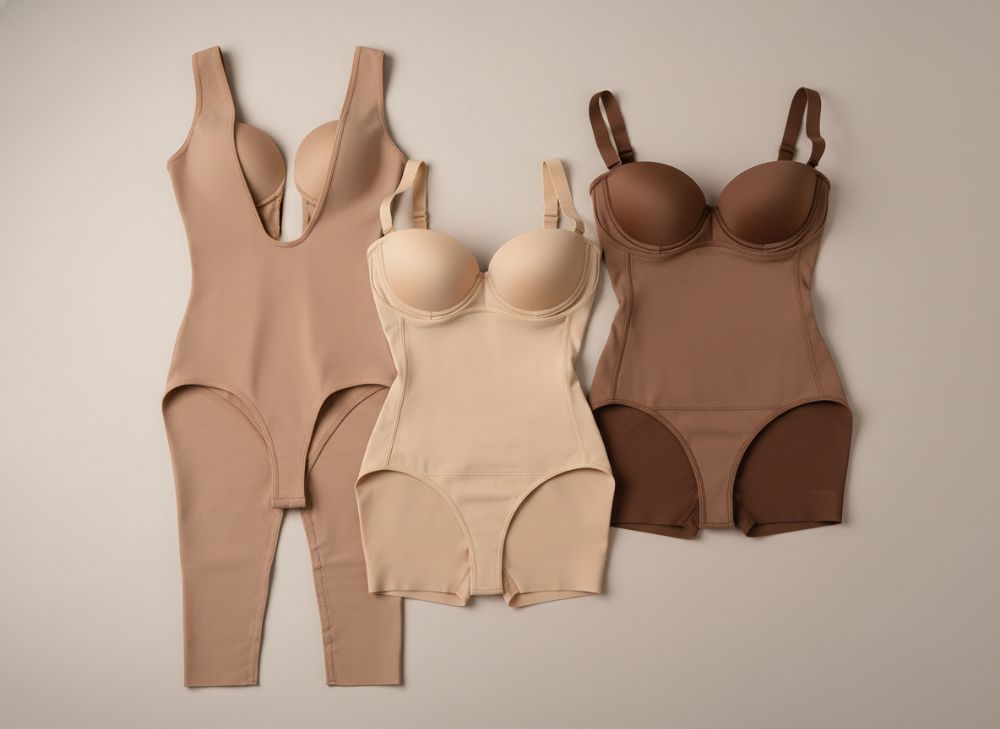
Custom backless shapewear slip dress solutions for Spanish bridal boutiques
Custom backless shapewear slip dress solutions for Spanish bridal boutiques are no longer a niche add-on; they are becoming a core profit and service differentiator. Spanish brides increasingly choose gowns

Custom color backless shapewear slip dresses for German wedding dress retailers
German bridal retailers looking to improve gown fit, reduce alterations, and increase accessory attach rates should prioritize custom color backless shapewear slip dresses as a core part of their assortment
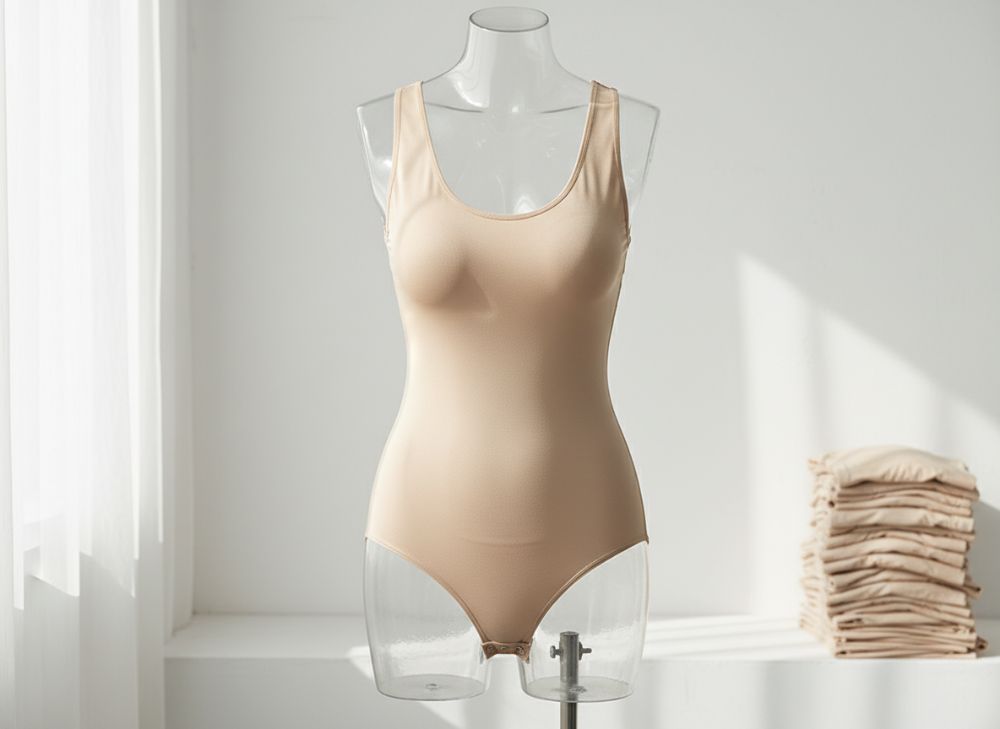
Custom color backless shapewear slip dresses for the French bridal market
For French bridal brands and boutiques, the fastest way to elevate customer satisfaction and increase dress conversion is to secure custom color backless shapewear slip dresses for the French bridal

Custom Color and Fabric Backless Shapewear Slip Dress Lines for Japan Boutiques
Custom color and fabric backless shapewear slip dress lines for Japan boutiques succeed when brands prioritize precision, subtle aesthetics, and stable OEM execution from the start. For Japanese boutiques, the






